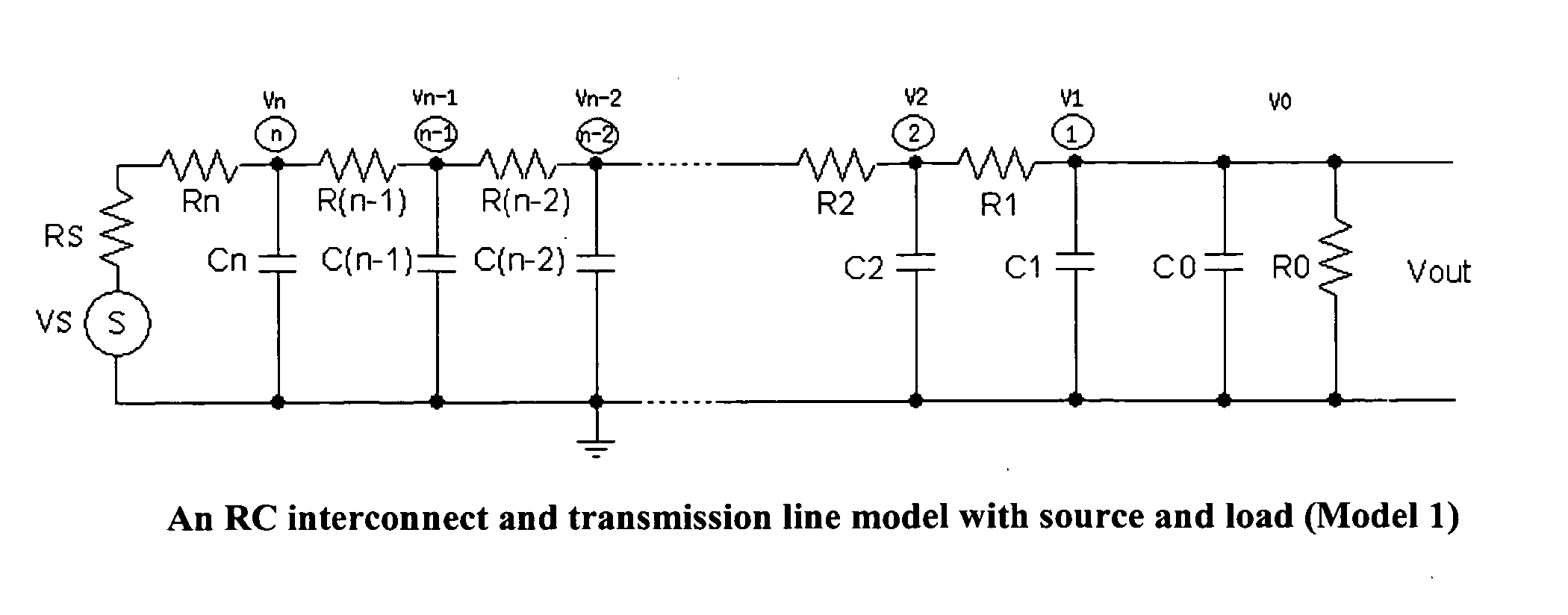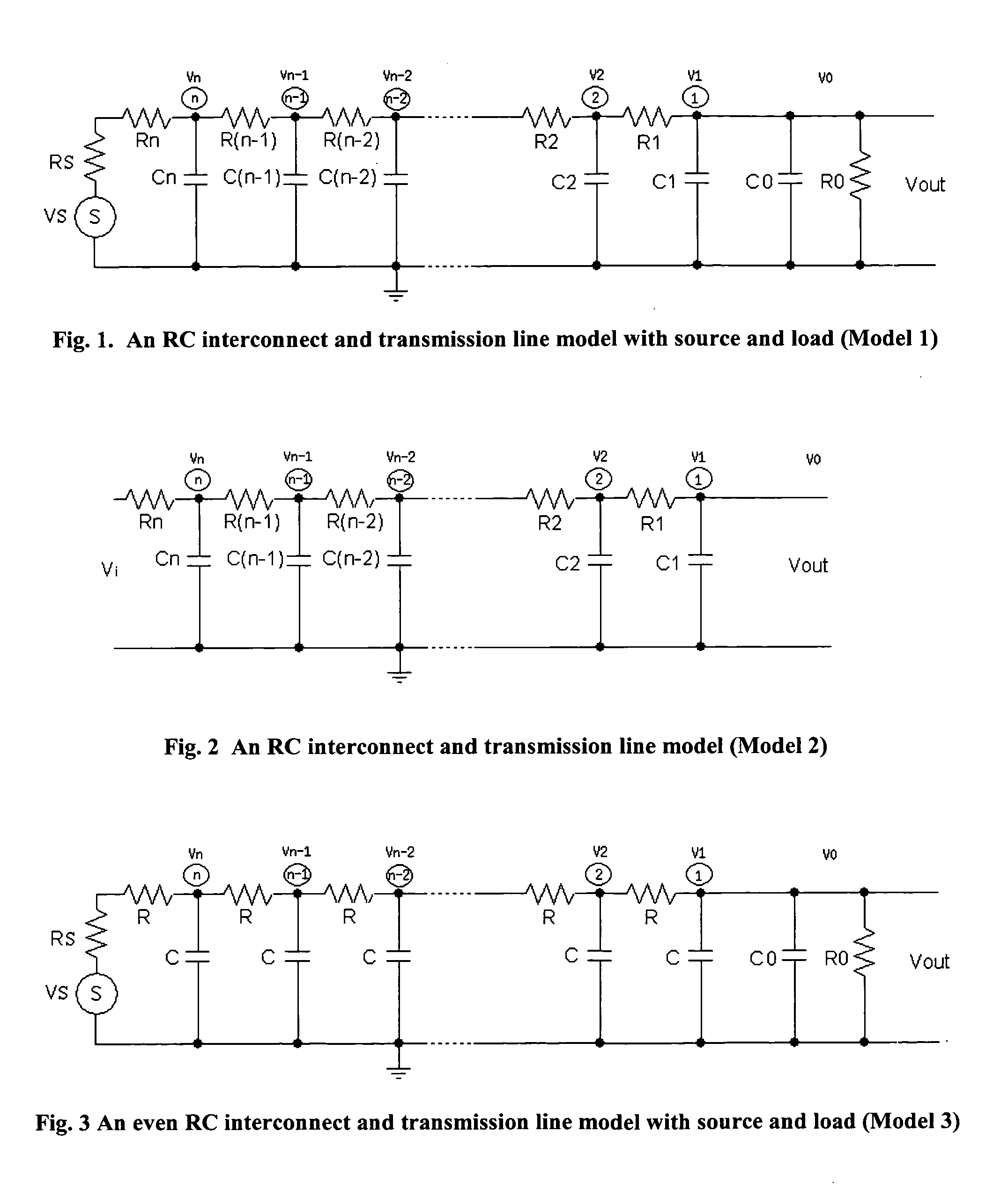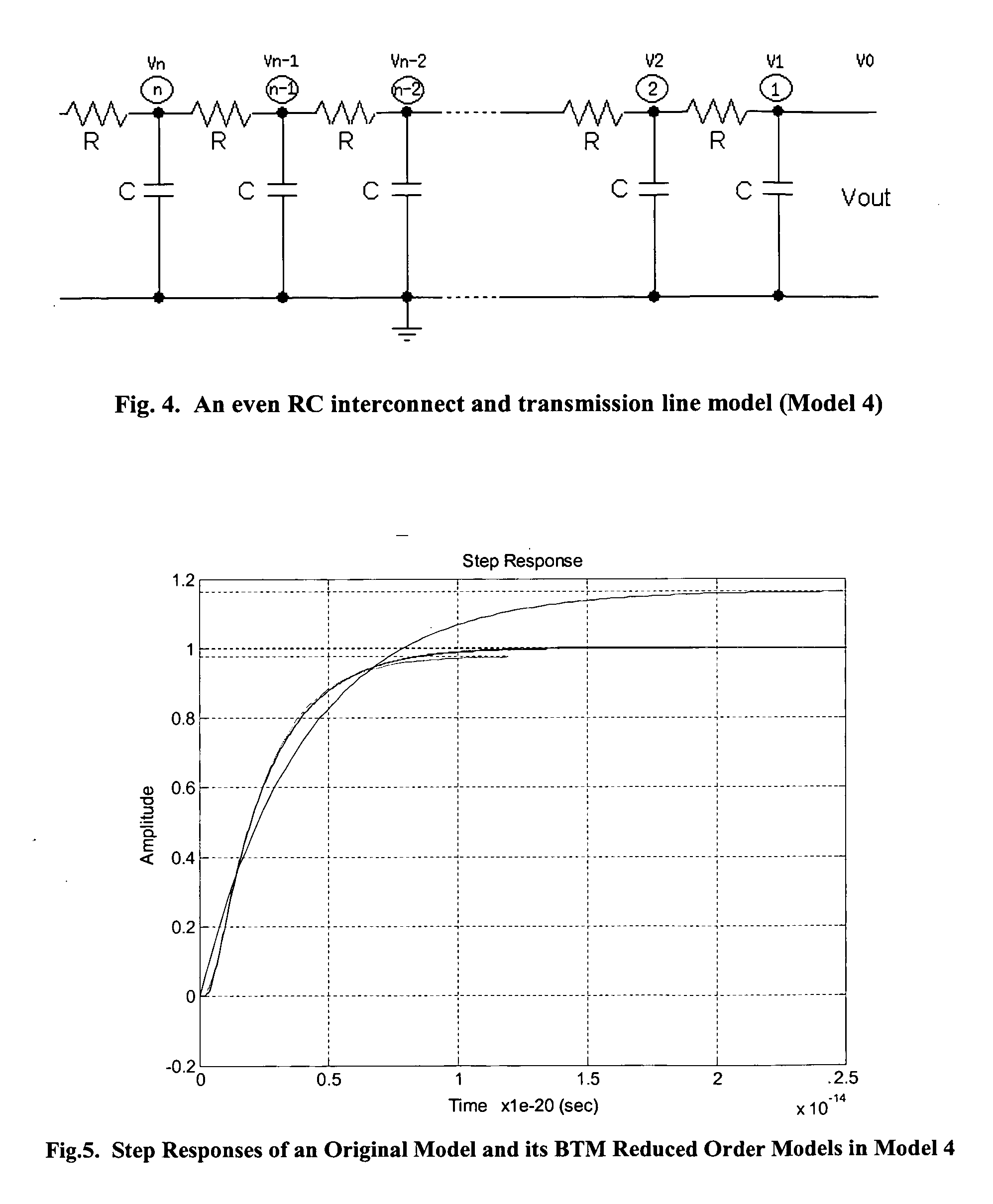Methods to generate state space models by closed forms and transfer functions by recursive algorithms for RC interconnect and transmission line and their model reduction and simulations
a transfer function and state space technology, applied in the field of state space model generation by closed form and transfer function by recursive algorithms for rc interconnect and transmission line and their model reduction and simulation, can solve the problems of unmanageable proportions the impact of interconnect design performance on the design performance of vlsi circuits, and the rise of interconnect modeling complexity
- Summary
- Abstract
- Description
- Claims
- Application Information
AI Technical Summary
Benefits of technology
Problems solved by technology
Method used
Image
Examples
case 1
[0180] Consider an even distributed RC interconnect Model 4 of 0.01 cm long with distribution characteristic data of resistor 5.5 kΩ / m and capacitor 94.2 pF / m. An 100 th-order model is used as its original model with R=5.5·10−3 Ω and C=9.42·10−5 pF.
case 2
[0181] Consider the same even distributed RC interconnect in Case 1, but with a source resistor Rs=500 Ω, a load resistor R0=1 MΩ, and a load capacitor C0=1 pF in Model 3. Here, these external parameters data are dominate, comparing with the distributed parameter data of R and C.
[0182] Case 1.A. By applying the Method SS4 for Model 4 to Case 1, the 100-th order original model S={A,B,C,D} is: A=1.9301·1018[-210⋯001-21⋯0001-2⋯00⋮⋮⋮⋰⋮⋮000⋯-21000⋯1-1],B=1.9301·1018[10⋮0],C=[00⋯1] and D=0;
Then, applying the BTM model reduction to the original model results the BTM models Sm={Am,Bm,Cm,D},m⪡n,e.g.,Sl is:A1=-2.4876·1014,B1=1.7024·107,C1=1.7024·107;S2:A2=1014[-2.48767.0384-7.0384-21.789],B2=107[1.70242.0209],C2=107[1.7024-2.0209];andS3:A3=1014[-2.48767.0384-3.5161-7.0384-21.78930.672-3.5161-30.672-59.418],B3=107[1.70242.02091.2294],C3=107[1.7024-2.02091.2294].
[0183]FIG. 5 shows the step responses of the original 100th order model in approaching 1 and its balance reduct...
PUM
 Login to View More
Login to View More Abstract
Description
Claims
Application Information
 Login to View More
Login to View More - R&D
- Intellectual Property
- Life Sciences
- Materials
- Tech Scout
- Unparalleled Data Quality
- Higher Quality Content
- 60% Fewer Hallucinations
Browse by: Latest US Patents, China's latest patents, Technical Efficacy Thesaurus, Application Domain, Technology Topic, Popular Technical Reports.
© 2025 PatSnap. All rights reserved.Legal|Privacy policy|Modern Slavery Act Transparency Statement|Sitemap|About US| Contact US: help@patsnap.com



